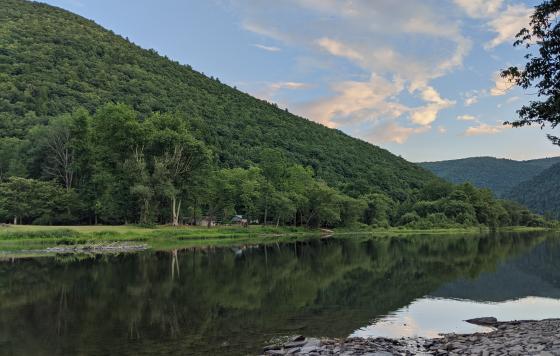By Alex Maykowski, Michigan Program Intern
Every summer as a child I traveled up to my grandfather’s home in Northern Lower Michigan. As much as I enjoyed spending time with my grandfather, my favorite part of this tradition was always knowing that just a short walk away was a beautiful lake—a walk I’d make every day.
Whether swimming, fishing or just spending time enjoying the landscape, there was always some joy to be had in that shining jewel of my halcyon summers. Unfortunately, though, I’m forced to wonder whether my own grandchildren will be able to enjoy the same type of experiences.
The chief area of concern is the consistent pollution—particularly that coming from power plants. Power plants are the most significant source of toxic water pollution in the country, dumping 5.5 million pounds of harmful waste into rivers, lakes and streams each year (including 1.8 billion pounds of toxic metals). These metals often include arsenic, boron, cadmium, selenium, lead and mercury—exposure to which has been linked to birth defects, cancer and other serious health issues.
More than 23,000 miles of rivers and streams—as well as lakes and other bodies of water into which they feed—are contaminated with power plant wastewater. This is of grave concern considering nearly 40% of all power plants discharge within 5 miles of drinking water intake. Clean Water Action recently released “Selling Our Health Down the River,” a report detailing the extent of this problem.
This has also had a deleterious effect on fish populations. It is actually considered unsafe to eat fish in 38% of our nation’s surface waters because of the harmful pollutants that power plants dump indifferently into our waters.
Despite all of this, nearly 70% of coal power plants in the United States have no limits on the amount of toxic metals that they are allowed to dump in our water.
To fix this, EPA will finalize the first-ever limits on toxic power plant water pollution by September 30, 2015. These limits would, for the first time, set technology-based national standards that limit the amount of toxic metals dumped into our rivers, lakes and streams.
Take action today to tell President Obama to work with EPA to finalize a strong rule to stop power plants from polluting our water.
Related Posts
Stay Informed
Get the latest updates and actions:
Thanks for signing up!
There was a problem processing your signup. Please try again.


